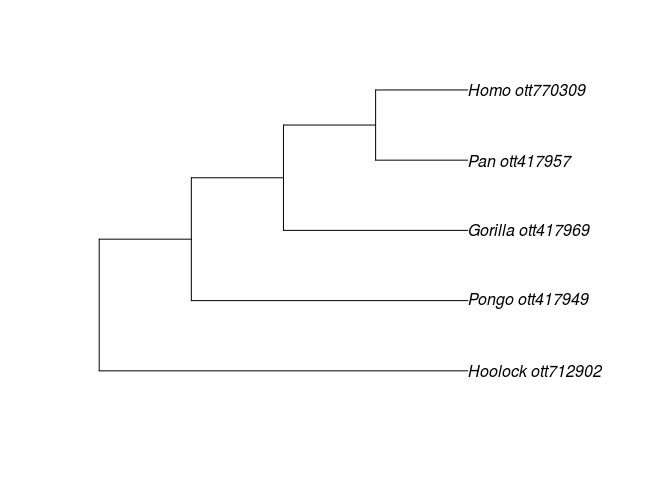
We are excited to announce a paper describing rotl, our package for theOpen Tree of Life data, has beenpublished. The fullcitation is: Michonneau, F., Brown, J. W. and Winter, D. J. (2016), rotl: an Rpackage to interact with the Open Tree of Life data. Methods EcolEvol. doi: https://doi.org/10.1111/2041-210X.12593 The paper, which is freely available, describes the package and the datait wraps in detail.




